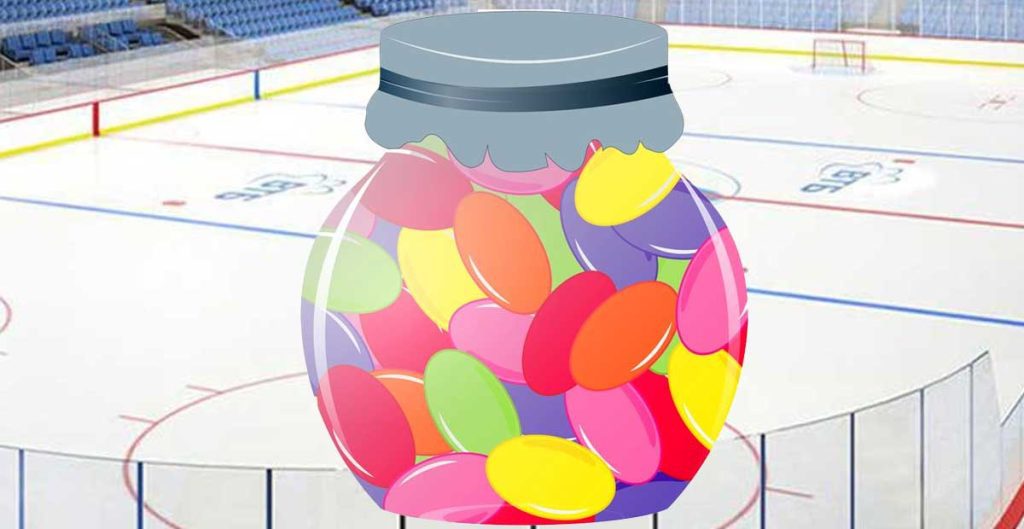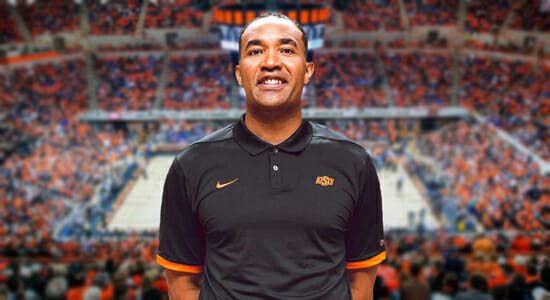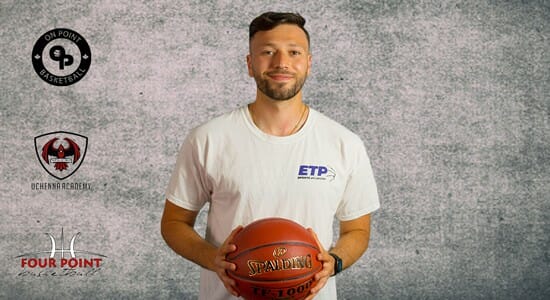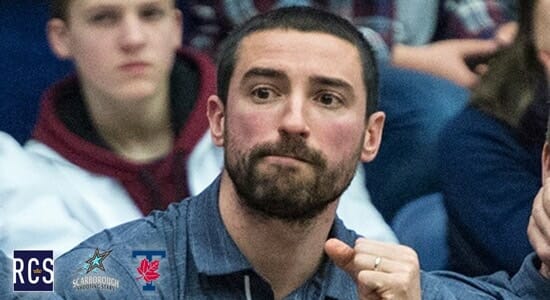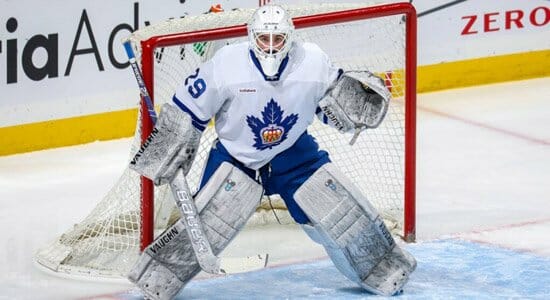
Toronto Marlies Goalie Andrew D’Agostini Reflects On The Road To Professional Hockey
Andrew D'Agostini | Goalie | Toronto Marlies



Young athletes that dream of playing professional hockey should always believe that it is possible.
Andrew D'Agostini
Goalie
Toronto Marlies
Going back to the beginning, tell us about your journey becoming a professional hockey goalie. When did you realize you wanted to pursue a professional career in hockey?
I realized I wanted to be a professional hockey player ever since I knew what the NHL was, so I would say that was around the age of 4-5.
I think as a kid that age, you just say it and don’t really know exactly what it means. So a more accurate answer may be around 10 or so, when I understood what the typical path to the NHL looked like.
At that point, I also understood that it was a job, and an actual career to pursue. To this day sometimes it feels like a job, most days it doesn’t.
I started skating at the age of 2 in small minor hockey rinks in Scarborough. If my brother and I weren’t trying to skate on the living room carpet or kitchen tiles, my dad would have us on an empty arena in the daytime, or the backyard rink of our childhood home.
I started in a player position, playing house league in Scarborough. I chose to switch to goalie at around 7-8 years old. Played my first competitive level of hockey in the SHA (Scarborough Hockey Association) for a few years, then climbed the ranks of AA and AAA in the years leading up to my draft.
My two years of AAA hockey were extremely critical for my hockey career because it was a short period of time to make a name for myself. But the Peterborough Petes believed in me and I was selected in the 3rd round of the 2009 OHL draft.
I spent 5 full seasons in Peterborough. I experienced everything the OHL had to offer, from the OHL subway series to U18s with team Canada. But what I, unfortunately, didn’t get to experience was being drafted to the NHL; this would have paved the way for a very bumpy road to where I am today.
I decided to take the school route after my overage year with Peterborough. I played in university for 2 seasons before finally reaching my dream of professional hockey. I have since completed an undergrad and master’s degree.
As was expected, my pro career started in the ECHL, with the Brampton Beast. Since then, I’ve played for several teams across the SPHL, ECHL and very brief stints in AHL, until now, where the Toronto Marlies have given me a good opportunity to play and prove myself at this level.

How did playing hockey at highly competitive levels such as the OHL and the Canadian Interuniversity Sport (now U SPORTS) league prepare you for the intensity of playing pro?
Playing at these levels helped me prepare for pro because I was exposed to many great coaches and mentors over the course of Jr. and U Sports.
I was the starting goalie for most of these years as well, so I got to experience the pressure/expectation to show up every game and give the team a chance to win.
My experience of winning a championship with my university helped me build confidence and develop a winning mentality, which I believe helped me make the leap to professional hockey.
I could go on about how these levels helped me prepare, for example, playing in front of thousands of fans, practicing every day with high calibre shooters, or simply playing three 20-minute periods (which we do not experience in minor hockey), among many other factors.
I am grateful for everything I learned at those levels of play.

You have a distinguished professional goalie career that includes playing for the Toronto Marlies of the AHL and having previously played for the Brampton Beast of the ECHL. How are you able to use your experience playing for these organizations to push yourself and meet your goals moving forward in your career?
There are many things I learned up to this point in my career that will help me carry forward on the ice and in my future endeavours.
One of the first things I learned is that, unless you are completely indispensable as a player on the team, your job is never safe. Pro hockey is a business and teams do whatever it takes to win, and in many cases, this is at the expense of a player’s job.
If you are not meeting expectations, your job is not secure. So, at these levels, especially if you are an undrafted free agent, you develop a very thick skin, an enormous amount of resiliency, and at times, an increased pain tolerance. Sometimes you just bite your lip and play through certain bumps and bruises.
What you also learn at this level is how to behave, and handle business like a pro. Whether you are learning from experienced players, coaches or staff, at this level you are expected to act like a pro and show up to the rink ready to give one hundred percent day in and day out.
You learn this fast!

What are three characteristics or skills you believe an aspiring professional hockey player needs to develop in order to build a pro career out of their love for the sport? Please explain each decision.
Of course, the first would be your actual on ice capabilities, from physically playing the sport, to mental preparation and actually understanding the team systems. Focusing on preparing your body and mind for performance is critical.
The second would be to develop a thick skin and resiliency that can withstand career barriers or roadblocks. Every athlete deals with adversity at some point in their career. If you are not ready for them, they can be destructive.
This could be anything from bouncing back from injury, being cut, playing for a team where you don’t see eye to eye with the coach, or even dealing with traumatic events away from the rink.
There are many ways to improve in this area, it can start with your actual on or off ice performance training. Putting yourself through excruciating training circumstances can help build mental toughness. Focusing on past times where you have come back from adversity is another way to develop confidence and strength to deal with a current situation.
Also, it never hurts to lean on teammates you trust or those close to you for support, guidance, or even tough love in some cases.
Finally, a skill I think all players should develop is leadership.
There are no age restrictions for being a leader, and leadership is not limited to certain individuals on the team. Any player can be a leader to someone, or in some way that adds value to the team.
I think reading about leadership is a great start (an easy ready is John Maxwell’s 21 Irrefutable Laws of Leadership, one of my all-time favourite books). Also, don’t hesitate to seek advice or guidance in building leadership skills from people you view as a high-quality leader. Leadership capabilities will take you a long way in sport and in life.
In addition to turning your love for hockey into a professional career, you have also been able to translate that into community involvement. Tell us about the charity initiative you started, Saves 4 CF, and what it means to you to be able to give back through the sport of hockey.
Saves 4 CF started back in 2011 with the Peterborough Petes when I met a young boy and his family. Anthony suffers from Cystic Fibrosis.
At that point, I had been looking for a cause to get more seriously involved with and when I met that family, I knew that it would be CF. The way that the initiative works is by local sponsors donating $1 for every save made by the goalies throughout the season.
Over the years it has grown into an initiative that four teams have adopted, those being the Peterborough Petes, University of Guelph Gryphons, Reading Royals and Brampton Beast. In all of its fundraising efforts, it has raised roughly $200,000.
Using my platform to give back to the community is very important. It has helped me improve as both an athlete and as a person. It is incredibly fulfilling, and always a reminder to remain grounded and grateful for simple things like our health, family, etc.
I hope that my efforts have and will continue to inspire other athletes to involve themselves with causes that are close to them.

What advice would you give to a young athlete? How can they level-up their gameplay to set themselves apart?
Young athletes that dream of playing professional hockey should always believe that it is possible.
No matter where they are at in their career, or what anyone tells them, this is the mentality that will allow them to reach their full potential.
If you prepare as best as you can, and play as hard as you can, every single day you will be able to look back and accept the outcome of your career.
Seek assistance from coaches or mentors that can help you both increase your skill, as well as navigate your career and help you make proper decisions.
Finally, be resourceful; while personal coaching on and off the ice is necessary, a lot of development can be done at home. I was always big on reading books and watching NHL highlights as a kid.
As a goalie I would watch all of the goals and saves from the previous night, and when I watched the games live, I watched my favourite goalies like a hawk. I always looked at what they were doing and how I may be able to apply it to my game.

It was incredible to get to speak with Toronto Marlies’ goalie Andrew D’Agostini about his path to playing professional hockey. From the beginning of his hockey career to the present day, Andrew has always had a dream of becoming a pro. His passion for the sport, paired with his commitment to becoming the best version of himself both physically and mentally, has allowed him to push past career barriers and make a name for himself in the professional hockey realm. He credits his career to the development of leadership skills and resiliency that can withstand even the toughest of roadblocks. His experiences in his hockey career have taught him valuable lessons about toughing it out, staying committed to the grind, and never losing sight of your dream.
The Latest


